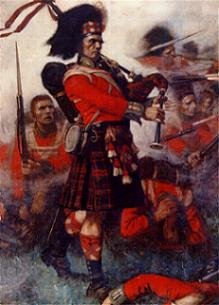Jane Appleyard - A Mothers love
Jane Scott was born in the town of Westbury in Wiltshire in
1854. The daughter of William and Mary,
Jane was the third of four children and from accounts, was of ‘gentle birth’.
Arriving in Port Albert to holiday with friends, Jane fell
in love with George Appleyard, the son of a convict, at a time when South Gippsland
was still being surveyed for possible farming. As well as farming, George and his brothers worked for the Shire, building many of the roads
and bridges in the region.
In 1877, Jane and George were married and in 1878 they moved
out to Binginwarri which, although only 20 kilometres from Alberton, was
considered wild at the time. In making this
move, Jane was the first white woman to settle in the area and, over the next
20 years would give birth to 14 children.
When the Great War began, Jane would have felt a sense of
pride as her sons began to enlist. As
the daughter of a soldier and still with strong links to England, she may have even felt a natural obligation to help her motherland by her sons volunteering.
Gordon would be the first of Jane’s seven sons to enlist
followed by Leopold 10 months later, then Charles, Allen, and Darcy. Ernest would enlist a further 12 months later.
Ernest was stationed in Flemington when Jane
found out that Gordon had been killed and Charles was missing. Allen, Darcy, and Leopold were still fighting on the Western Front.
Although Gordon was killed in August, Jane would not find
out until mid-September. Her repeated letters to
the army trying to find out how and where Gordon had been killed would
highlight to the army the need for better reporting and communications for the
families. Records show that Jane and
George continued to write to the army in an effort to find out more information
about Gordon, finally getting some answers once the Red Cross became involved.
With Ernest still situated in Australia, and not knowing if
Charles had been killed, Jane also wrote to the Australian Department of Defence
requesting that Ernest be allowed to stay in Australia.
”I have
6 sons in the A.I.F. The first one [Gordon William] went at the outbreak of the
war in Oct 1914. He was in the Dardanelles for 6 months when he was invalided
to England. He recovered and was sent to France some time ago and was killed on
24th Aug.
Another
son was wounded about the same time in France and I cannot hear where he is or
any tidings of him. 3 other sons are in the thick of the battle. The 6th son is
still here in camp. He was ill and sent to the Base Hospital where he was
operated on a month ago. He came home yesterday on sick leave for 14 days. I am
writing to ask you to give this son his discharge. He is the only one we have.
His Father is too old to look after the farm and I think we have given our
share with the 5 boys who we might never see again.
Please
grant this request and discharge our son. We shall be ever grateful to you. I
am yours most respectfully”.
Twenty
days after writing the letter, Ernest would be discharged from duty due to
family circumstances and return home to Alberton with Allen, Darcy and Leopold
returning at the end of the war. Charles
would be killed in action and buried 20 kilometres away from his brother, Gordon, in
France.
Image: Jane Appleyard circa 1905
Relationship to Peter Appleyard: Daughter in law
Photo from the Dunn family collection

.jpg)


Comments
Post a Comment